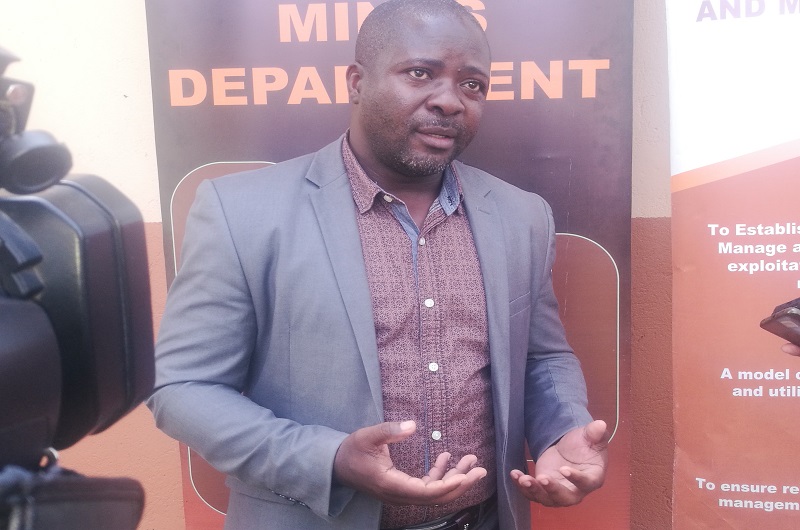West Nile Artisanal Miners Tipped On New Regulations
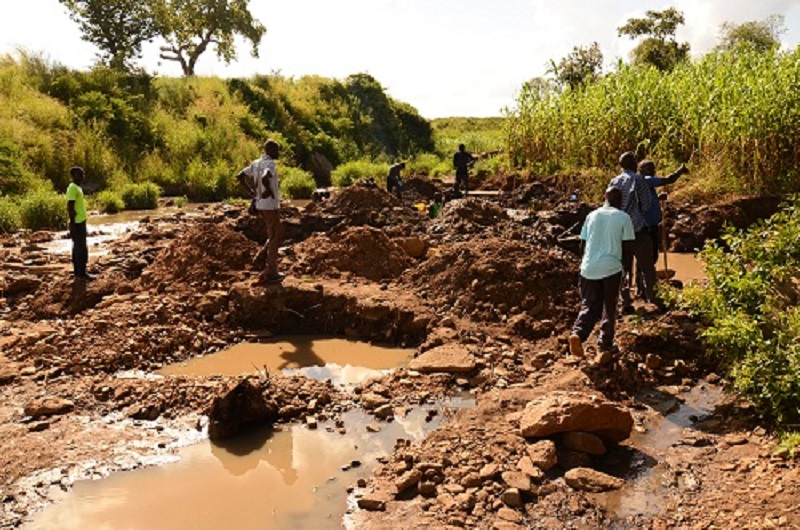
Locals involved in gold mining along the shores of Ore river in West Nile. Courtesy photo
ARUA. Artisanal miners in the West Nile sub-region have been tipped on the new policy draft aimed at regulating their operations.
The new clauses in the policy drafted by the Ministry of Energy and Mineral Development together with the Ministry of Justice and Constitutional Affairs were presented to the miners and local leaders in a consultative meeting held at Arua district council hall on Friday, August 9, 2024.
Speaking during the meeting, Agnes Alaba, the Commissioner in charge of Mines in the Ministry of Energy and Mineral Development, said the draft will ensure that the artisanal miners in the region are licensed and known to the ministry.
“We are here today as the Ministry of Energy and Mineral Development to consult local district government and artisanal miners on the regulation that the ministry together with the ministry of Justice has drafted to ensure that the artisanal miners are regulated; they have specific areas where they can operate. We should know them and we should ensure that they are also preserving the environment and for any other support service that can be given to them,” Alaba said.
She added that: “As they are regulated, they are in an association, the government can train them and provide any other technical support to the miners. So, the purpose of this is for us to organize, license and regulate artisanal miners.”
Artisanal miners are a group of people or individuals who do rudimental mining. They use rudimental tools; simple tools like the spade, axes and hoes to extract minerals from the ground. They usually live from hand-to-mouth-based categories of miners.
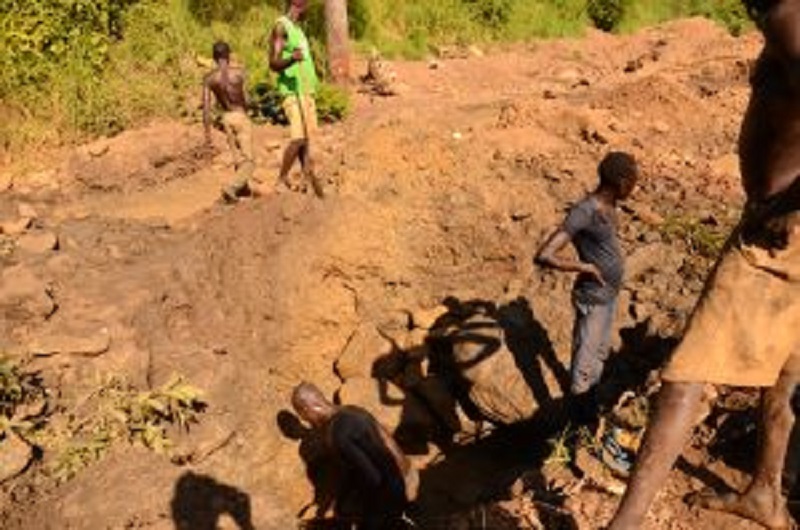
“And therefore, they need minerals which they can extract with these simple tools. Now for example, if you look at Uranium, you can’t grant it to artisanal miners because they don’t have the technology to extract that mineral,” Alaba explained.
She noted that in the West Nile region, they have identified a number of minerals that can be worked on by artisanal miners and one of them is gold.
“So, our main drive is to have artisanal miners settled in specific places so that we can see the impact of that sector in the country. We know their contribution and challenges and that is why we are sharing the areas that we have identified to gazette as artisanal mining areas to see whether they are already licensed and if not, we can see how to license them,” Alaba explained.
Alaba, however, observed that artisanal mining license is only given to Ugandans with a strict restriction of not going beyond 10-meter depth while mining to avoid incidences of soil burying people alive.
She said failure to adhere to the regulations, the mining Act provides for a lot of penalties to offenses in regard to mining, starting from as minimum of 5000 currency points depending on the magnitude while illegal mining is about 500,000 currency points which translates to about shs50m to shs100m after court assesses the magnitude of the offence.
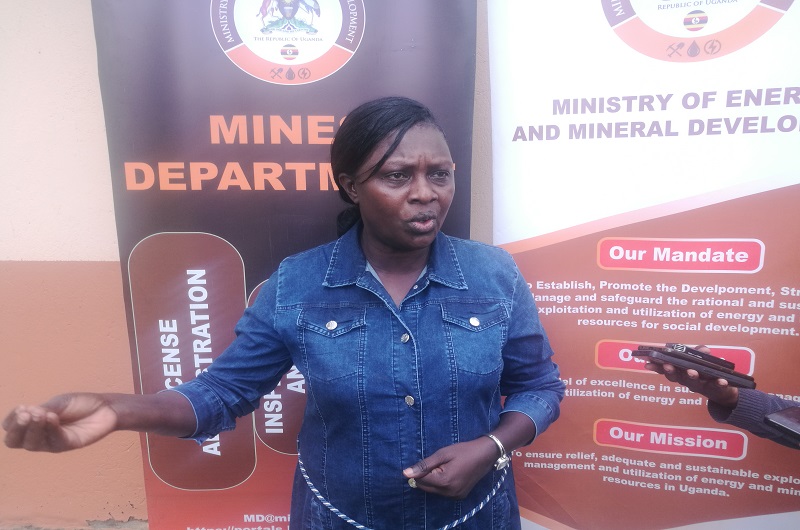
Willy Musema, one of the artisanal miners in West Nile, welcomed the policy draft and promised to cooperate with the ministry in ensuring that his activities are registered so as to benefit from the different government programs under the Ministry of Energy and Mineral Development.
Musema said they have been facing a lot of challenges from the community members during the mining process, but he now believes that with the coming of the government to regulate both the miners and communities, problems such as additional claims over the land in the mining area may not arise if the activity is officially registered.
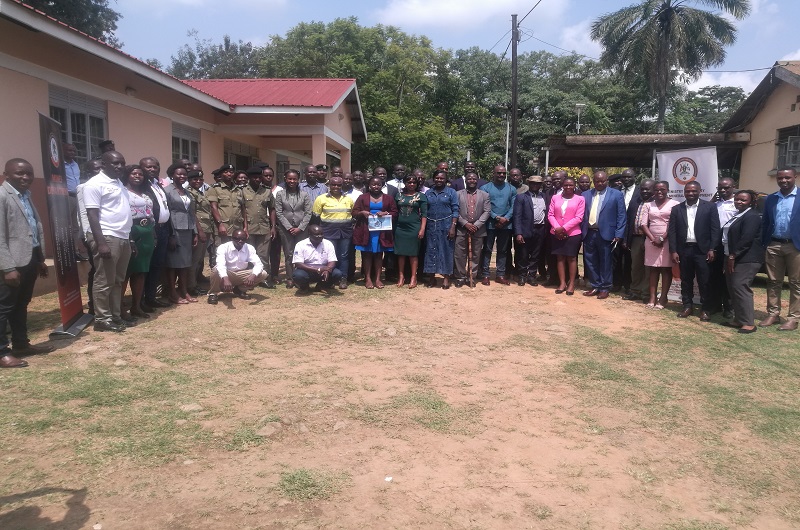
In his remarks, Denis Okwai Jawoko, the Arua Deputy Resident District Commissioner (RDC), said once artisanal mining is regulated, it is going to help local leaders to ensure safety.
“We have heard cases where people have been buried underground when they go mining, we have lost lives, we have lost property and so many other things. But also, we have been losing a lot of revenue as a government. So, as the chairperson of the security committee, the element of environmental impact assessment is very crucial for us. Now we know, before you start operating or mining, it is crucial for you to get artisanal mining license. This will help us know that a number of factors have been considered before you are allowed to engage in these activities,” Jawoko
